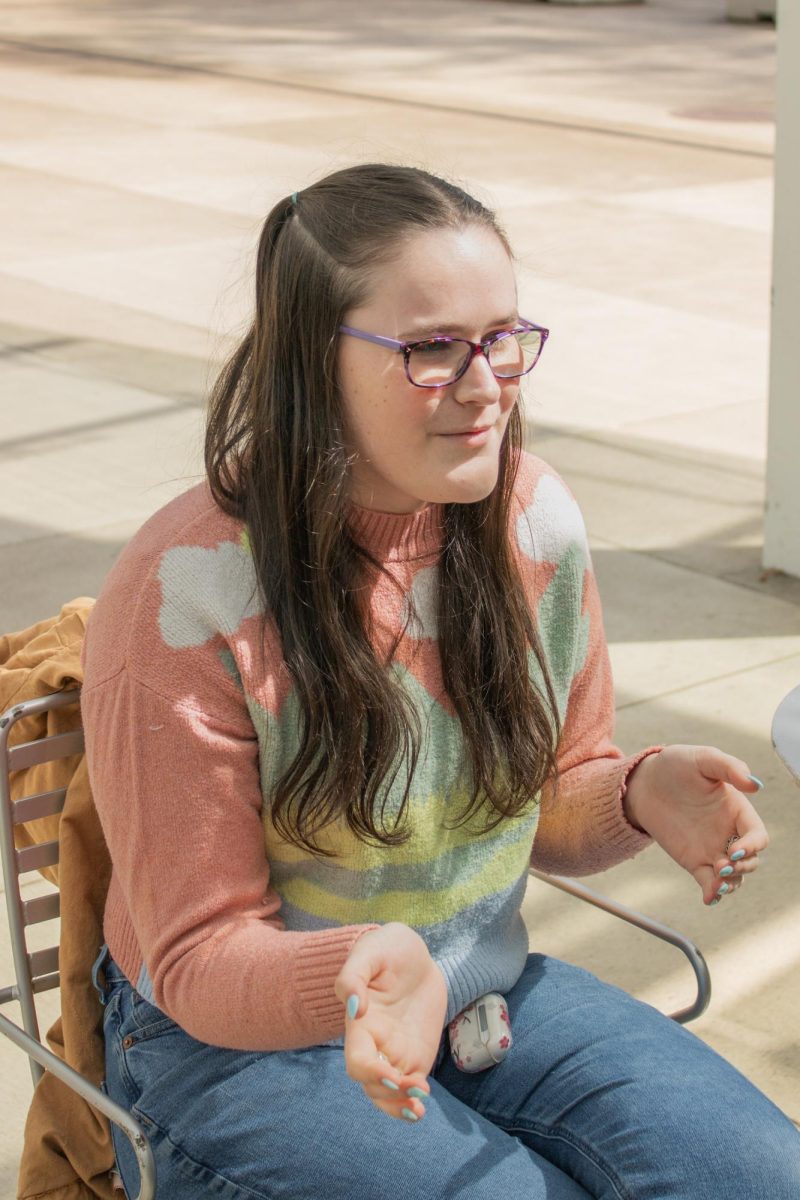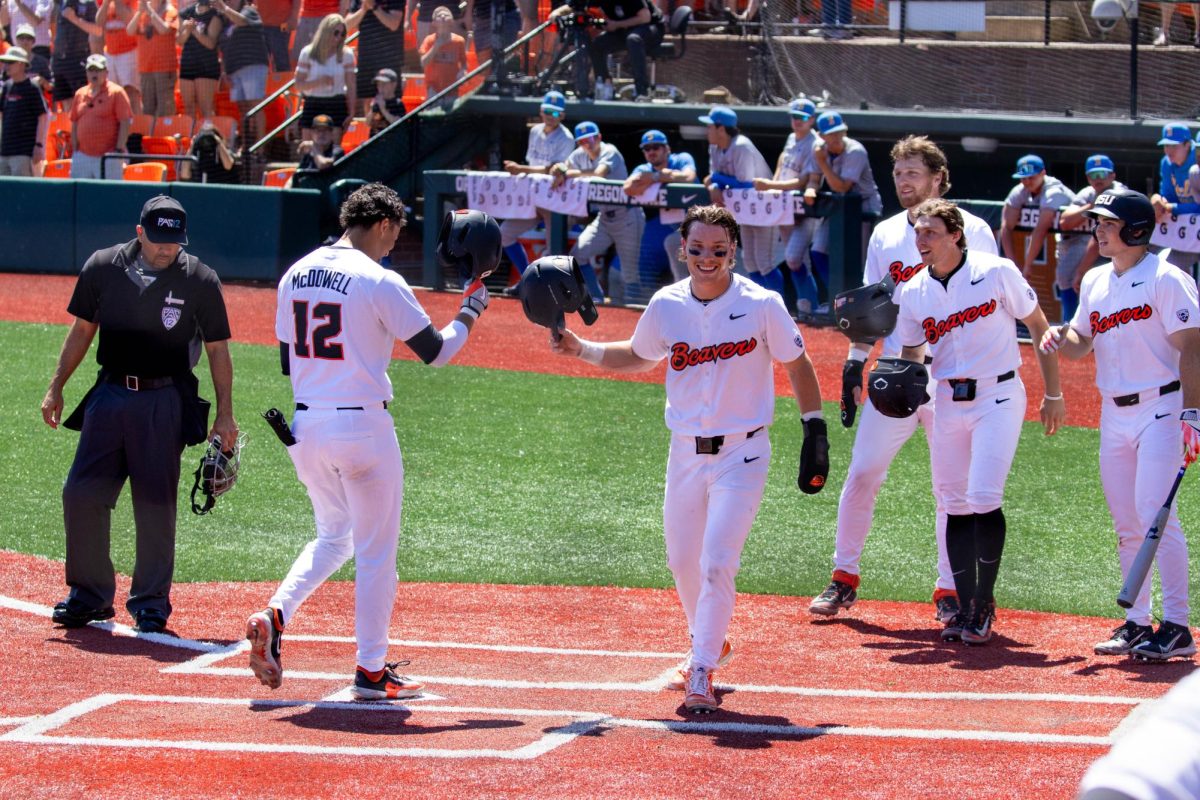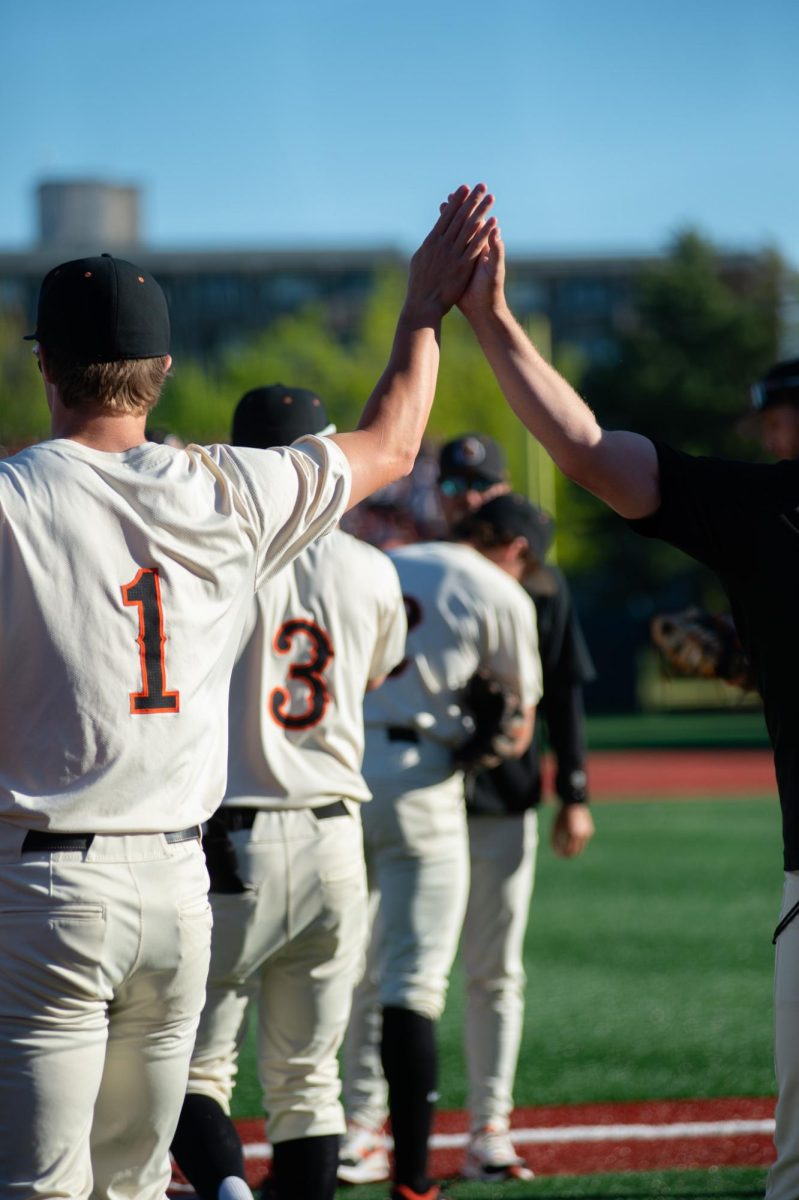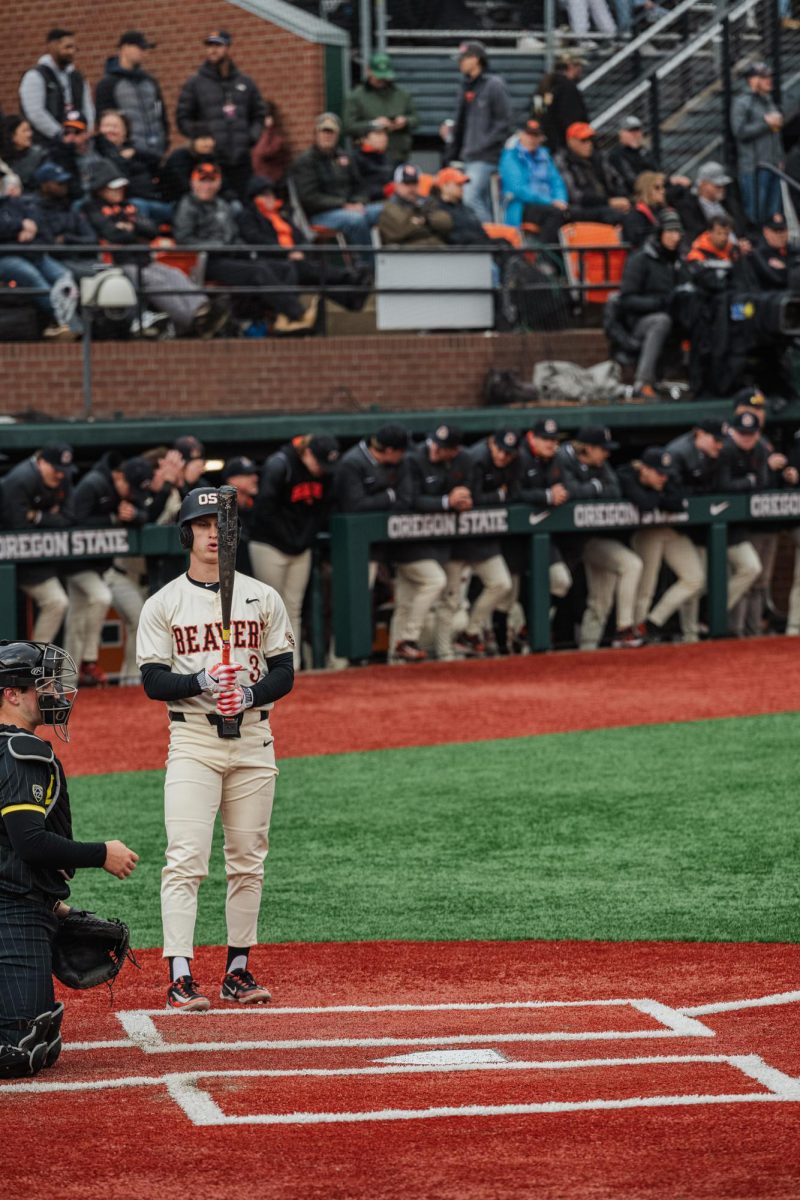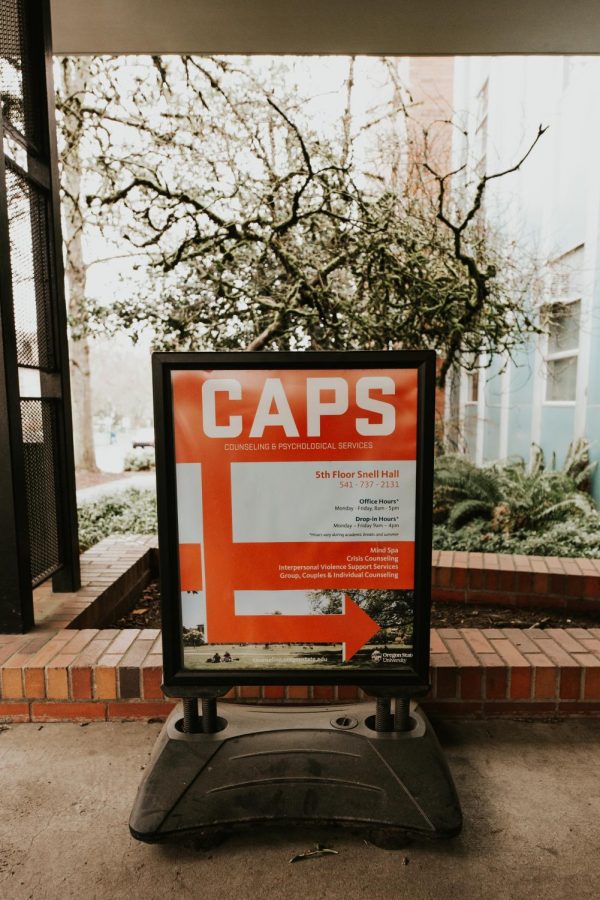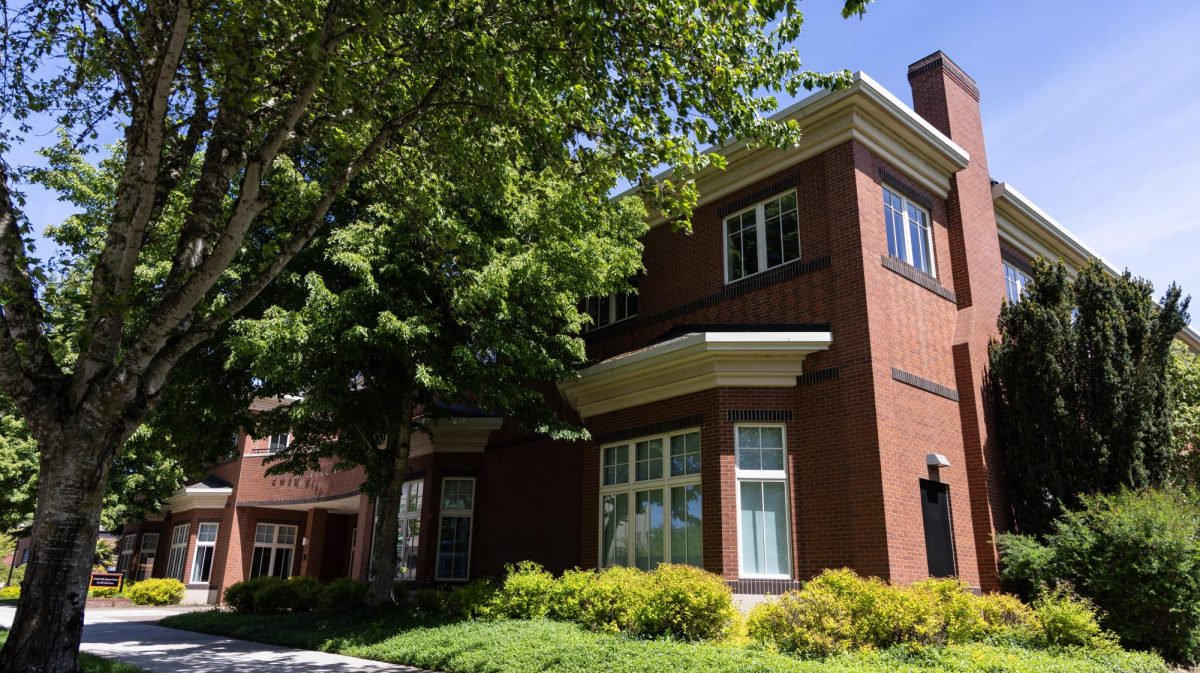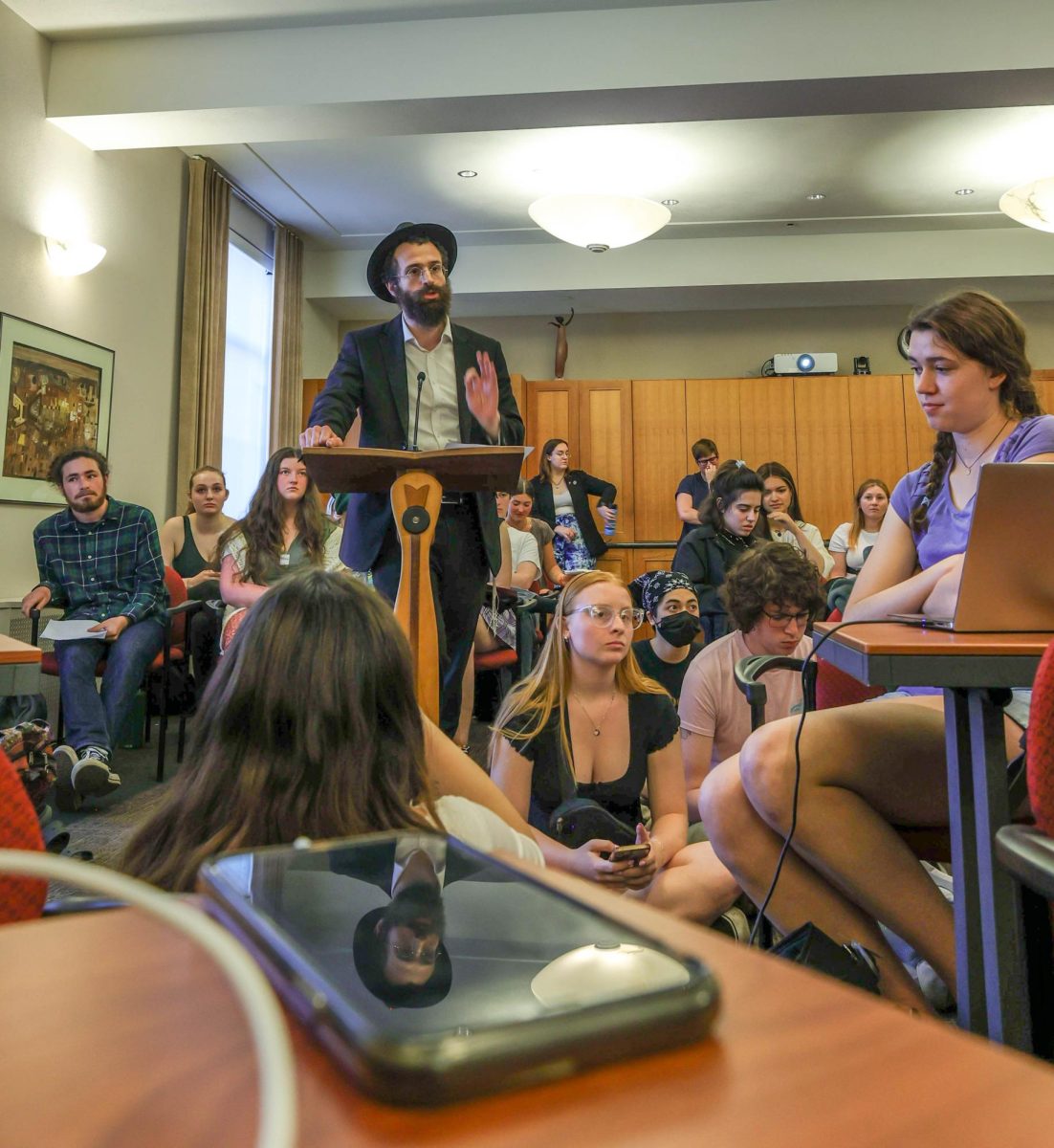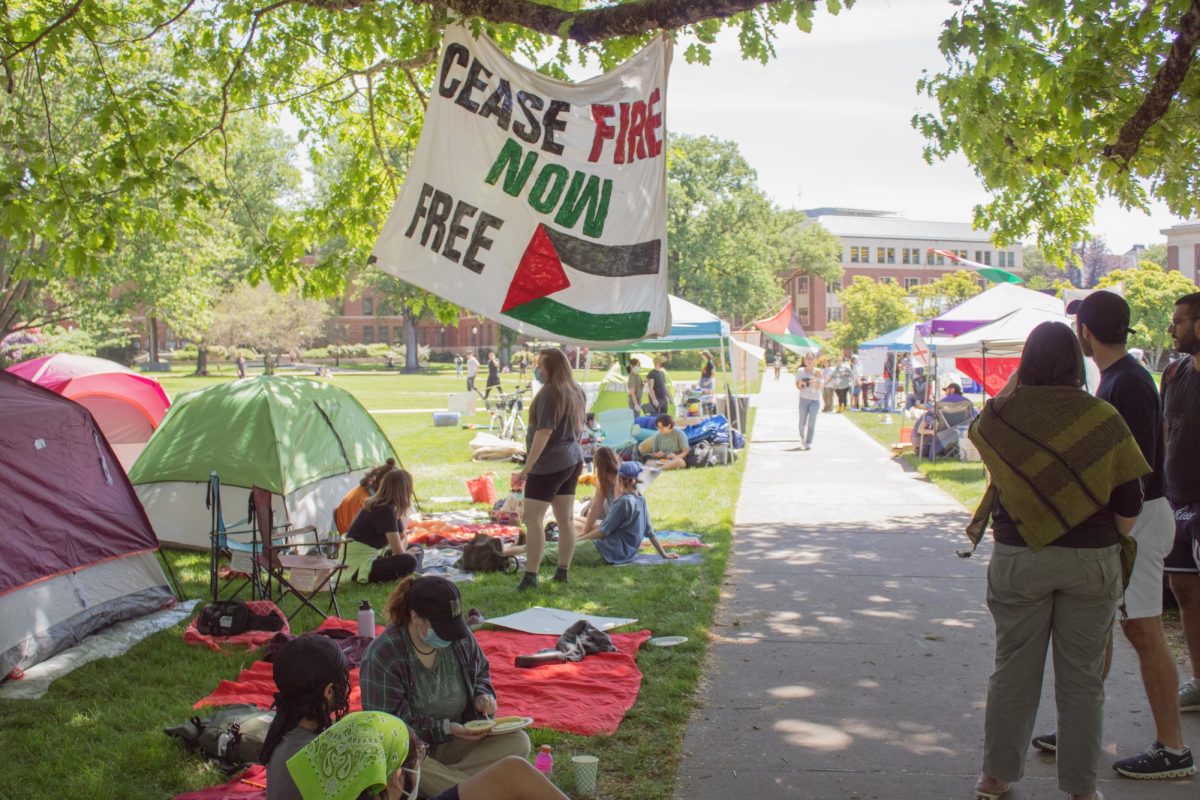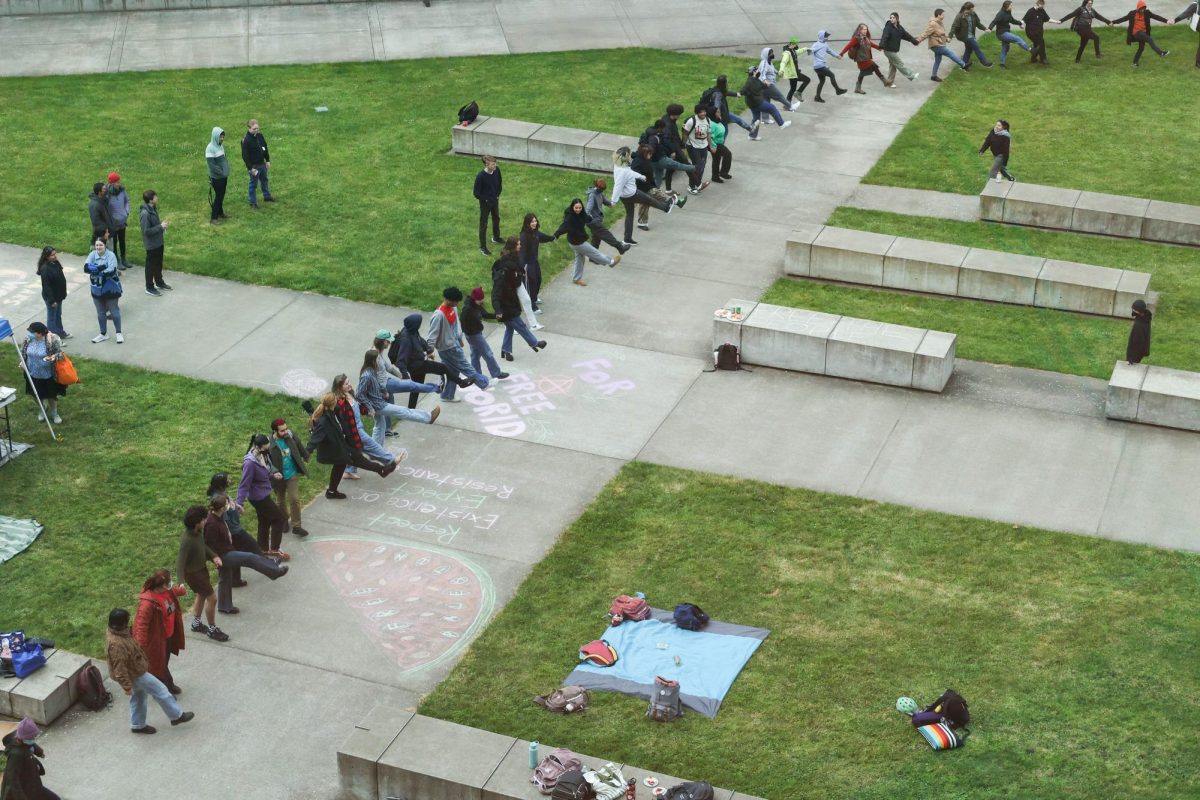Oregon State University’s Counseling and Psychological Services claims in its mission statement to “provide mental health counseling to students, and consultation, outreach and education to all OSU community members.”
While some OSU students said that their experience with the service did not live up to expectations, CAPS claims they are making changes intended to address these issues.
Diego Venegas, an engineering student at OSU, says that he and a friend of his went to CAPS in 2022. Venegas lived alongside, and was allergic to, an emotional support animal.
“We figured we’re already paying for CAPS, might as well give them a try,” Venegas said, after the duo tried sorting the issue themselves.
According to Venegas, the two friends signed up for relationship counseling. Venegas said that he felt “rushed” when signing up due to CAPS only being available at certain times of the day.
According to CAPS’ Assistant Director of Mental Health Promotion Bonnie Hemrick, CAPS now offers 24/7 access to counseling through the Anytime Anywhere app, called TELUS Health Student Support.
According to the Anytime Anywhere OSU website, the application is a product of TELUS Health, a health company out of Canada, with the app being free for all students taking classes on the Corvallis and Cascades campuses or through Ecampus.
“With the addition of this service, students can connect with counselors in real time in whatever way feels most comfortable for them,” Hemrick said, who added that Anytime Anywhere also provides support in Mandarin, Cantonese, Spanish and French.
According to Venegas, in the weeks after signing up for counseling, both he and his friend got personal calls from CAPS workers, followed by a group meeting wherein the offered solution was for one of them to move out.
“They kind of, respectfully, let us down,” Venegas said, who still lives with this friend and attributes this not to CAPS but to personal growth and compromise with a solution being found a year and a half after the appointment with CAPS.
“I don’t think I would go back,” Venegas said. “I don’t know if I regret it or not because I do think that was a valuable experience in knowing that I don’t want to go back. But it was kind of a tough path to get there in the first place.”
According to Hemrick, students who seek counseling and are not in immediate crisis should first schedule a phone consultation through the CAPS website. The phone consultation will help CAPS determine a student’s needs and what services may help the best with further meetings being scheduled if short-term counseling is found helpful.
According to the Anytime Anywhere OSU website, CAPS offers access to a teletherapy room at The Valley Library for students who wish to meet with an Anytime Anywhere counselor privately. The room may be reserved by calling CAPS at 541-737-2131 or emailing [email protected]
Dove Miller reached out to CAPS in the fall of 2021 and was placed on a waitlist after a brief phone consultation. According to Miller, she next heard from CAPS in February of 2022 when asked to fill out a 10 minute survey on her experience.
“Honestly, I’d kind of forgotten I’d emailed them,” Miller said. “When I got it, you know, completely out of the blue, I wasn’t expecting anything and it felt like I just got randomly insulted.”
According to Miller, her issue eventually resolved itself and the experience did not sour her on therapy as a whole and she would be willing to give CAPS another try only if approached on the street and offered therapy right then and there.
“I wouldn’t turn that down if I had that kind of assurance that I might actually get talked to,” Miller said. “But I mean, if I get really bad again or something, I think even if I don’t have any other options I’m not going to reach out because I don’t expect them to get back to me.”
Scout Harris reached out to CAPS during their freshman year in the fall of 2019.
“I went hoping to find a counselor who could treat my issues,” Harris said. “I tried my best to explain all that I was experiencing and needed help with. I was asked to pick one issue as they could only offer services for one issue at a time.”
Narrowing down a specific issue to work on, Harris met with CAPS and was suggested a support group, as well as it being suggested that they find a private practice therapist.
“I left the session feeling mostly uneducated and unsupported,” Harris said. “I think CAPS can be really helpful for people who need help organizing their life and adjusting to college or learning how to practice time management but I was dealing with complex physical and emotional trauma that left me with symptoms of PTSD.”
According to Hemrick, CAPS has since added six coordinators of student mental health and wellness who “provide specialized support for Black and African-American, Indigenous, LGBTQ+, and Veteran and Military-connected students,” with a desire to add more coordinators for other groups over time.
Additionally, CAPS offers an online training for students called “Recognizing and Supporting Students in Distress.”
“Sometimes connecting with others is all we need to feel better in the moment,” Hemrick said. “The peer-to-peer module takes about 30 minutes to complete and provides the opportunity to engage in simulated role plays that help students gain skills in navigating conversations about mental health sensitively and safely.”
According to Hemrick, CAPS is meant to help students connect with resources and skills to help them engage with and improve their mental well-being.
“CAPS is also always here for students in crisis, with 24/7 support via our main phone line, the Anytime Anywhere app and an on-call clinic for urgent needs,” Hemrick said. “If a student is seeking long-term or weekly care, CAPS can help connect them with providers in the community via our ThrivingCampus portal.”
Neither Venegas, Miller nor Harris said they would return to CAPS, with Miller saying that she gave them “whatever the lowest rating was across the board” when asked to give feedback, despite the recent changes made.
The main phone line for CAPS is 541-737-2131, and they can be emailed at [email protected]. Their office is on the fifth floor of Snell Hall.










